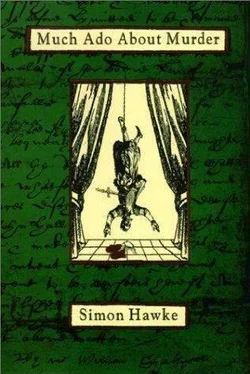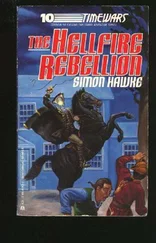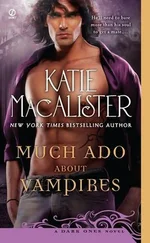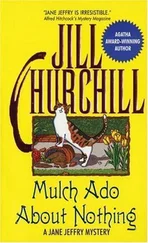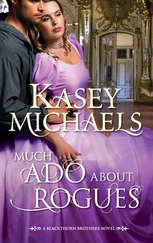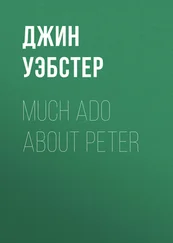Simon Hawke - Much Ado About Murder
Здесь есть возможность читать онлайн «Simon Hawke - Much Ado About Murder» весь текст электронной книги совершенно бесплатно (целиком полную версию без сокращений). В некоторых случаях можно слушать аудио, скачать через торрент в формате fb2 и присутствует краткое содержание. Жанр: Исторический детектив, на английском языке. Описание произведения, (предисловие) а так же отзывы посетителей доступны на портале библиотеки ЛибКат.
- Название:Much Ado About Murder
- Автор:
- Жанр:
- Год:неизвестен
- ISBN:нет данных
- Рейтинг книги:5 / 5. Голосов: 1
-
Избранное:Добавить в избранное
- Отзывы:
-
Ваша оценка:
- 100
- 1
- 2
- 3
- 4
- 5
Much Ado About Murder: краткое содержание, описание и аннотация
Предлагаем к чтению аннотацию, описание, краткое содержание или предисловие (зависит от того, что написал сам автор книги «Much Ado About Murder»). Если вы не нашли необходимую информацию о книге — напишите в комментариях, мы постараемся отыскать её.
Much Ado About Murder — читать онлайн бесплатно полную книгу (весь текст) целиком
Ниже представлен текст книги, разбитый по страницам. Система сохранения места последней прочитанной страницы, позволяет с удобством читать онлайн бесплатно книгу «Much Ado About Murder», без необходимости каждый раз заново искать на чём Вы остановились. Поставьте закладку, и сможете в любой момент перейти на страницу, на которой закончили чтение.
Интервал:
Закладка:
“Did you question the servants?” Smythe asked.
“Aye, I have already spoken with them. They swear that they did not ransack the house. They have no idea where Leonardo kept his money. They are worried. They say that they have not received their wages, but despite their claim that they have not even ventured upstairs since the crime, I suspect they have already looked through everything.”
“You think they might have taken it?” asked Shakespeare.
Dickens shook his head. “I cannot say. I would have thought that if there was money in the house for them to take, they would have found it and absconded with it. Then they would be far away by now. Instead, they are still here; there is little in the larder, and they do not even seem to know where their next meal is going to come from.” He shook his head again. “Methinks that there was nothing here for them to find.”
“Perhaps he had his money deposited with some merchant banker,” suggested Shakespeare.
Dickens shook his head again. “I had thought the same, but then there would have been letters of credit, or else bills of exchange, and I have discovered none. I thought perhaps that he might have devised some clever hiding place in which to store such things, but if so, then I have failed to nose it out.” He sighed with exasperation as he looked around at the mess. “ ‘Tis a mystery to me, I tell you. Leonardo was a wealthy man, and yet, there is not one coin to be found in this entire house. If his money was not stolen, then where is it?”
Shakespeare scratched his chin. “A thought occurs to me,” he said, “and yet, I hesitate to speak it for fear that it might give offense.”
Dickens glanced at him. “Go on, Will. Be forthright. Say what is on your mind.”
Shakespeare cleared his throat. “Well… if there were such documents as letters of credit or bills of exchange, do you suppose that Corwin could have taken them?”
For a moment, Dickens did not speak. The corners of his mouth drew tight. “After he murdered Leonardo, do you mean to say?”
Shakespeare cleared his throat once more. “To find the truth, must not one consider all the possibilities?”
Dickens stared him down.
“Ben,” said Smythe, placatingly, “we know that Corwin is your friend and that you are loyal to him. But if we do not ask these questions, others shall. Corwin has already been arrested. Soon he shall be tried. He is in dire straits and your loyalty, however honorable or well-intentioned, cannot help him now. Only our diligence and perseverence in searching out the truth can be of any aid to him. And if he is truly innocent, then the truth shall set him free.”
“Or else condemn him,” Dickens said, tightly.
Smythe stared at him as comprehension suddenly dawned. “Odd’s blood. You think he might have done it,” he said, softly.
Dickens looked down at the floor and then savagely kicked out at a chest that had been overturned. “Aye, damn it, I think he may have done it. Beshrew me, a fine friend I have turned out to be to suspect him guilty of so vile a deed!” He kicked the chest again, splintering it. “Bloody hell! What keeps going through my mind again and then again is the thought that had I only followed him that night, then I may have arrived in time to prevent…” His voice trailed off.
“There may have been nothing to prevent, Ben,” said Smythe, “at least insofar as Corwin is concerned. Had you followed him, then you may or may not have arrived in time to prevent him from breaking off his engagement, but if that was all he did that night, then you would doubtless have left the house together, and the murderer would have arrived after you had gone.”
“Aye, but then at least I would have been able to swear to Corwin’s innocence,” said Dickens. “And as matters stand, I cannot say that I know in my heart that he could not have done it. Fie upon me for a false friend! Never would he have doubted me!”
“Perhaps not, but you cannot truly know that, Ben,” said Smythe. “Were your roles reversed, Corwin might well be blaming himself even now for suspecting that you could be a murderer. Can any man truly know what another man may do when the blood runs hot and overwhelms his reason? Perhaps no man even knows what he may do himself in such a circumstance. Either way, it makes no difference. Suppose, just for the sake of argument, that you had followed him that night, and that when the two of you left here together, Master Leonardo was still alive. Then you could swear to that at Corwin’s trial, of course. But everybody knows that for the price of only a few crowns, men can be bribed to bear false witness. They can be found in Paul’s Walk every day, waiting to sell their honor for the price of a meal and a few drinks. And ‘tis well known that you are Corwin’s friend, and a mercenary, to boot. I mean you no offense, Ben, but ‘tis doubtful that your word would bear much weight in his defense.”
“The only thing that matters is that we find out what truly happened here that night,” said Shakespeare. “You said that you have spoken with the servants?”
“Aye, and they could tell me nothing.”
“But they were here that night?” said Shakespeare.
“They say so.”
“And they saw nothing? They heard nothing?”
Dickens merely shrugged and shook his head.
“How is that possible?” asked Shakespeare, frowning. “Servants commonly know everything that goes on inside the house wherein they work. I would like to speak with them myself.”
“Do as you wish,” said Dickens. “If you discover aught, then I shall stand a ready listener.”
They went back downstairs, where the servents waited anxiously, as if not knowing what else to do.
“Where are the other servants of the house?” asked Shakespeare, speaking to the wispy-haired man who’d let them in.
“We are all here, milord,” the man said, glancing around nervously.
“What, just the three of you?” asked Shakespeare, frowning again. The two women stood close together, clutching their aprons anxiously.
“Aye, milord,” the man replied. “We are all the servants in this house.”
“What is your name?” Shakespeare asked him.
“I am called Edward Budge, milord.”
“And the women?”
“This here is Mary Alastair, milord,” he replied, indicating each with a gesture, “and this is Elaine Howard.”
“You are both English,” Shakespeare said.
“Aye, milord,” they both replied nervously, almost but not quite in unison. They bobbed in a slight curtsy.
“Was there not a Genoan lady in this house?” asked Shakespeare. “A governess or maidservant for Master Leonardo’s daughter?”
“Nay, milord, we was all there is,” replied the one called Mary. “The mistress did for herself, she did.”
“Aye, very good to us, she was, milord,” added Elaine. “A kind soul with a good heart is our Mistress Hera; never spoke a cross word to any of us. Never struck us, neither.”
“Aye, she wouldn’t ask us to do anything she wouldn’t do herself,” added Mary. As they spoke, they both kept glancing at Edward, as if for reassurance. He nodded in agreement.
“How very strange,” said Shakespeare, puzzled. He looked at Ben. “You came to England aboard ship with Master Leonardo and his daughter, did you not?”
“Aye, I did,” said Dickens.
“And did they bring no servants with them from Genoa at all?”
Dickens looked blank for a moment. “Now that you mention it, I do not recall there being any servants attending them aboard ship, although for most of the voyage Hera had remained below, struck with the sea sickness. I may have assumed that there was someone taking care of her, but in truth, I do not believe I ever gave the matter any thought, one way or the other.”
Читать дальшеИнтервал:
Закладка:
Похожие книги на «Much Ado About Murder»
Представляем Вашему вниманию похожие книги на «Much Ado About Murder» списком для выбора. Мы отобрали схожую по названию и смыслу литературу в надежде предоставить читателям больше вариантов отыскать новые, интересные, ещё непрочитанные произведения.
Обсуждение, отзывы о книге «Much Ado About Murder» и просто собственные мнения читателей. Оставьте ваши комментарии, напишите, что Вы думаете о произведении, его смысле или главных героях. Укажите что конкретно понравилось, а что нет, и почему Вы так считаете.
